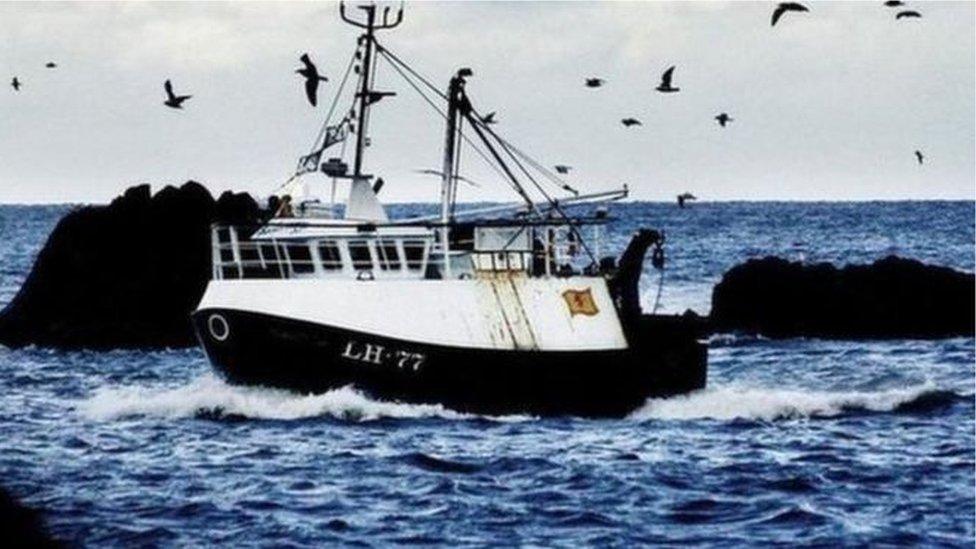Brexit deal 'throws NI fishermen to the sharks'
- Published
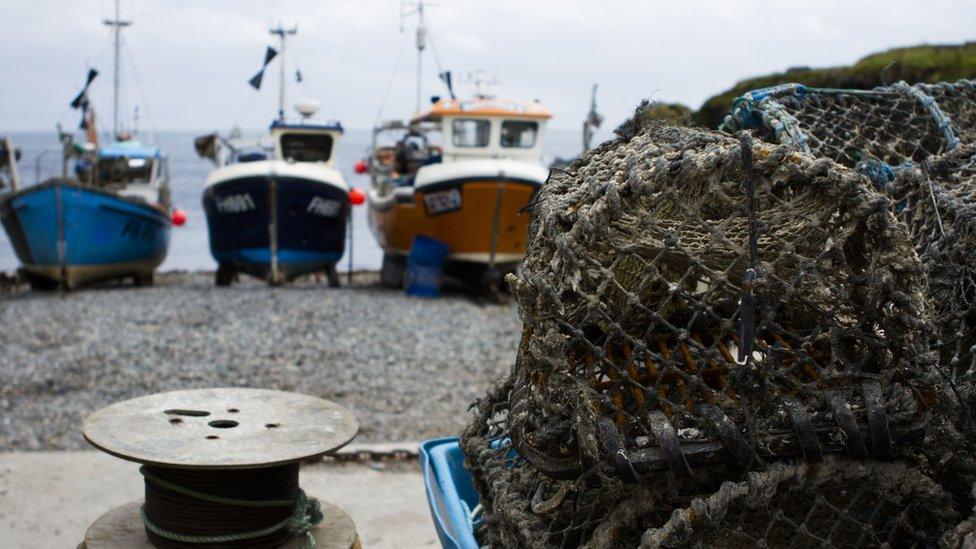
The UK will be "consulted" on fish quotas during the Brexit interim period between 2019 and 2021
Northern Ireland's fisherman have been "thrown to the sharks" over the UK's agreement to keep EU fishing policies during the Brexit transition period.
Harry Wick, head of the NI Fish Producers Organisation, said the industry was "angry and disappointed".
Fishermen had wanted the UK to regain full control over the country's fishing waters on Brexit day, 29 March 2019.
Instead, the UK will be "consulted" on fish quotas during the interim period until 2021.
Environment Secretary Michael Gove said he shared the "disappointment" of fishing communities, but urged them to keep their "eyes on the prize" of getting control over the country's fishing waters for the first time in 40 years after December 2020.
Scottish Conservative MPs are set to meet the prime minister about the issue on Tuesday following criticism of the decision.
They are expected to press Theresa May for a guarantee that full control will return to the UK when the transition period ends in 2021.
On Monday, the Scottish Fishermen's Federation said the agreement falls "far short of an acceptable deal".
Mr Wick said that the government had "thrown the fishing industry under the Brexit bus" and that Northern Ireland fishing businesses could be under threat.
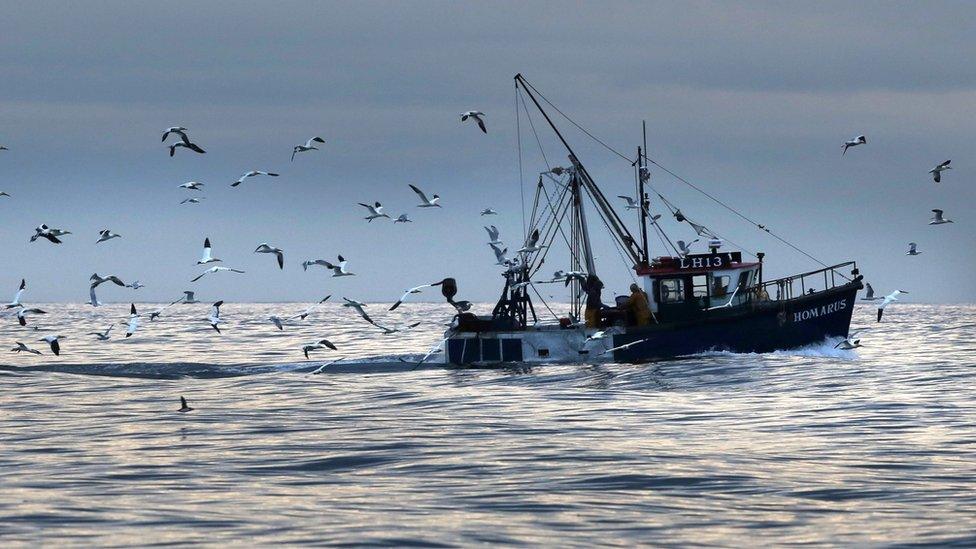
The UK government said it had received safeguards to protect UK fishermen
"The danger of signing us up to the Common Fisheries Policy for another few years, where we've no voice at the table and where we're only consulted, then Europe can set policies that detrimentally affect the UK," he said.
"This could push many of our fishing businesses to the wall."
He said he supported Scottish Conservative MPs who will meet the government later and added that the DUP should "exert their influence".
'Safeguards'
"The DUP have long been a good friend to the fishing industry and I would call out to them now in this time of need - we also need their support in getting this very, very dangerous transition period shortened specifically for the fishing industry."
On Monday, the UK government denied breaking its promise to "take back control" of the UK's fishing waters after Brexit.
"We have secured specific safeguards on behalf of British fishermen," said a spokesman for the prime minister.
He said the deal specified that in 2019, "there is a commitment that the UK's share of the total catch cannot be changed".
From 2020, "we'll be negotiating as an independent coastal state and we'll decide who can access our waters and on what terms", added the spokesman.
But Mr Wick said the industry wanted to hear what these specific safeguards are.
He asked: "If they are in place, why haven't we been told about them?"
Mr Wick added that 92% of fishermen had voted to leave the EU and that the prime minister and Brexit Secretary David Davis were to blame for failing to secure a shorter transition period for the fishing industry.
Alan McCulla, chief executive of the Anglo North Irish Fish Producers' Organisation, said he was disappointed, but the issue was "not all over".
"The ultimate goal is to end the inequality, the bias and the discrimination that Northern Ireland fishermen have had to suffer from Europe by the Common Fisheries Policy for the last 45 years," he told BBC News NI.
"And the bottom line is that even if we don't get a deal, we won't be any worse off than we are at the minute."
- Published20 March 2018
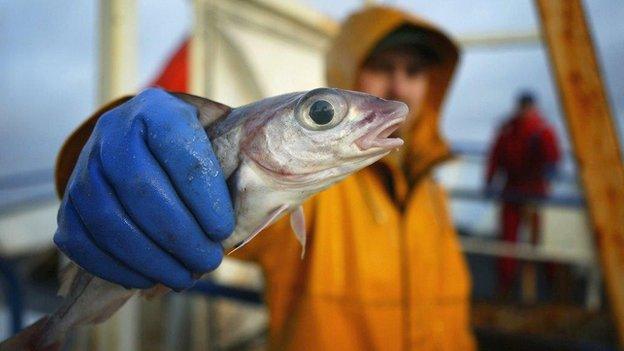
- Published19 March 2018
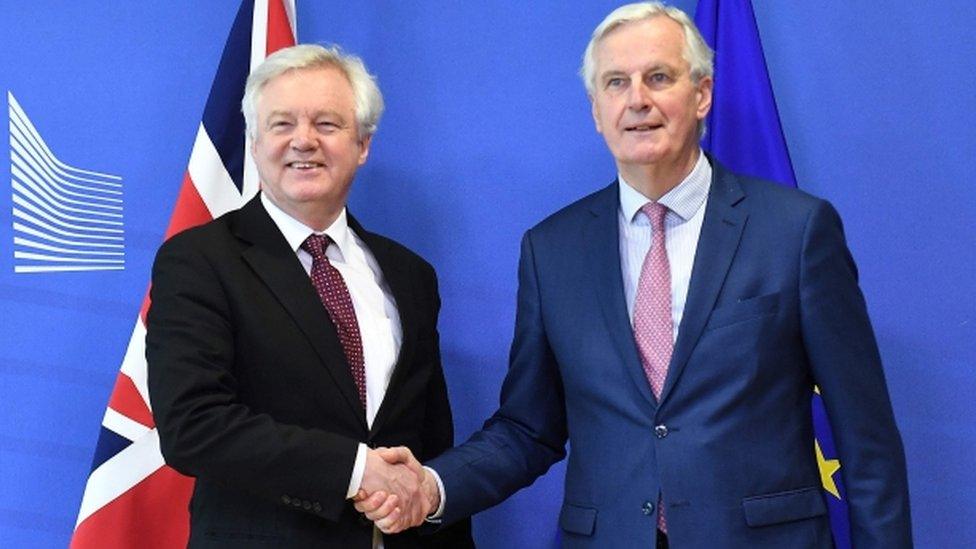
- Published19 March 2018
